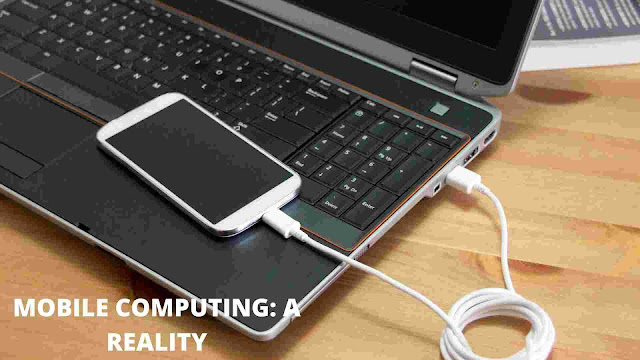MOBILE COMPUTING: A REALITY Technology in history
 |
MOBILE COMPUTING: A REALITY |
MOBILE COMPUTING Laptops are spreading faster than any other consumer technology in history. Mobile teams are in the crosshairs of all large, small, medium, and emerging companies. The best-selling product in recent years has been the mobile phone and its direct heir the smartphone, which is already a complete pocket computer. There has never been a product before that had the speed of introduction of mobile equipment in its different flavors. At this same time, some companies are developing wristwatches that, thanks to nanotechnology, are similar to smartphones, thinking that the market wants smaller and more portable equipment.
The business of the moment
Mobile in Use
Phones in Use in millions of units
The mobile equipment business is just getting started. Less than 30 percent of the total market has had access to mobile technologies. The “late buyers” from developed countries are just beginning to join them. Some of them have been little friends with computers, who have just realized how easy it is to be in contact with distant grandchildren and children when using the applications of tablets and other light and friendly equipment. Mobile equipment includes a large number of equipment that has been developed to meet the demands of different markets.
Marketing itself is undergoing a transformation, caused by the impact of mobile devices in the hands of the billions of people who have a mobile phone or device in their pocket, always within reach.
Although the statistics vary, it is more than half of the population that inhabits the planet, this is more than 3 billion that one of those computers has. Because they are personal and always at hand, they represent the most widely covered medium for delivering advertising messages.
Emerging markets
Although the saturation of the markets never occurs, some of them, such as the "early birds" or early buyers, already have, for a long time, sophisticated mobile communication equipment. Not just one, but several of them, including mobile phones, tablets, netbooks, and PCs.
In developing or underdeveloped countries, unlike developed ones, mobility is less widespread. But, it is an attractive market of many billions of people, whose low income does not allow them to make high investments in equipment such as the iPhone or the Samsung. When there is no person who does not yearn and want to have a smartphone, the demand for these devices is limitless. Those who drive the desire for state-of-the-art technological equipment most strongly are the children, who no longer want wooden trucks as gifts for Christmas, no matter how poor they may be.
Surveys that are done in poor neighborhoods and neighborhoods, when children are asked what they want as a gift for the end of the year, they all answer that they want a phone with a large screen. This cannot be blamed on "marketing", because it is natural that we all want to have the good and beautiful that others have. It is something so ingrained in the human being, that it makes us distinguish ourselves from the rest of the animals.
China on the attack
Seeing this demand for smart equipment, many manufacturers in China have started to produce them at low prices, which are within the reach of the great majority.
Google's Android operating system, which is free, and “turnkey” systems for smartphones from Chinese companies, have proliferated manufacturers of low-cost smart equipment in Asian countries. The cost of manufacturing a smartphone in these countries is less than $ 40, a price that may be reduced in the future.
Computing in hand
The increase in the sales of smartphones and tablets has been enormous since the iPhone appeared in 2007. Microsoft's PCs and Windows are ceasing to be the dominant operating system of personal computing. The growth in smartphone sales comes largely at the expense of older “entry-level” phones, as they are replaced every one to two years at the most.
Two-thirds of mobile telephony have yet to be converted to smart equipment. In 2013, about a billion smart devices are being sold. PC sales, meanwhile, have been gradually declining.
Customers have changed. They have tasted what information and telecommunications technology is, taking it wherever they go, in the palm of their hand. Although you have other equipment, you are preferring to use handheld computers, which we can carry anywhere in our pocket.














well done bhai
ReplyDeleteNice post
ReplyDeleteuseful article
ReplyDelete